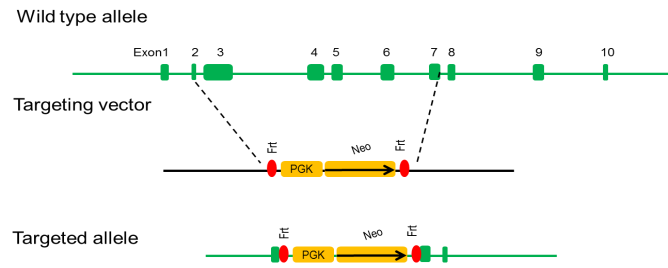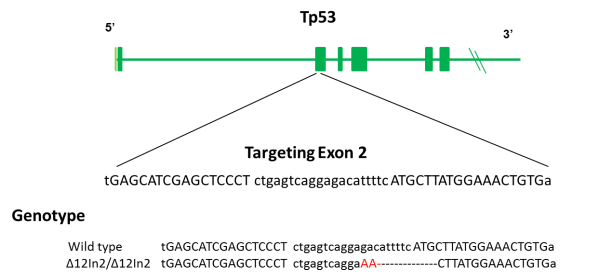自发型肿瘤模型是通过基因编辑技术使小鼠携带致癌基因或抑癌基因突变的动物模型,
可以在免疫健全的小鼠体内自发形成肿瘤。相比于肿瘤移植模型,该模型的自发肿瘤组织与人类肿瘤组织的组织病理学和分子特征相似,具有遗传异质性,并能够自发发生肿瘤转移。能够更好的模拟人类肿瘤疾病的发生发展进程。
P53基因是迄今发现的,与人类肿瘤相关性最高的基因。P53是抑癌基因,有“基因组守护者”的美誉,可调节细胞周期,参与DNA损伤修复;当细胞受损又无法修复时,p53能够诱导细胞发生凋亡,防止癌变的发生。有研究表明,人类大约一半的肿瘤发生于P53基因突变有关。当P53敲除或突变时,会导致小鼠自发肿瘤的发生,是研究人类肿瘤疾病较好的模型之一。
云顶国际可提供两种P53基因相关自发肿瘤模型,分别为B-p53 KO mice和B-p53-KO rats。
B-p53 KO mice
Project background
The Trp53 gene encodes tumor protein p53, which involves in diverse cellular stresses to regulate target genes that induce cell cycle arrest, apoptosis, senescence, DNA repair, or changes in metabolism. P53 protein is expressed at low level in normal cells and at a high level in a variety of transformed cell lines. Mice with homozygous p53 inactivation are developmentally normal but are susceptible to spontaneous tumors.
Targeting strategy

B-p53-KO rats
Project background




 京公网安备: 11011502005564号
京公网安备: 11011502005564号






